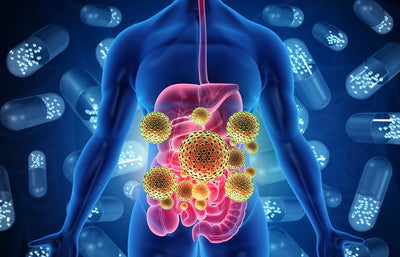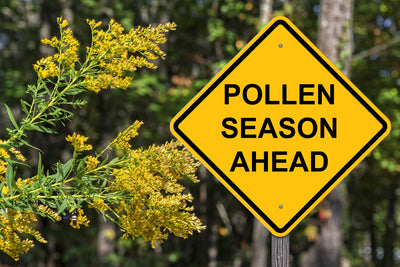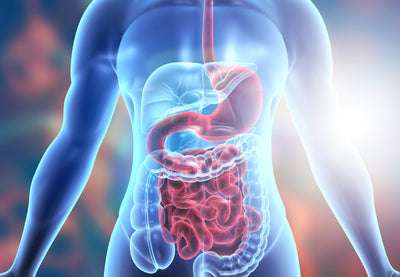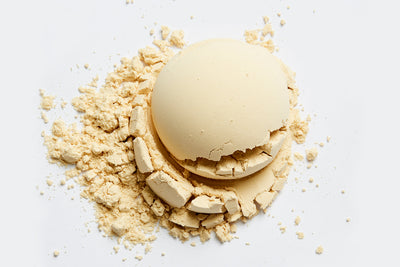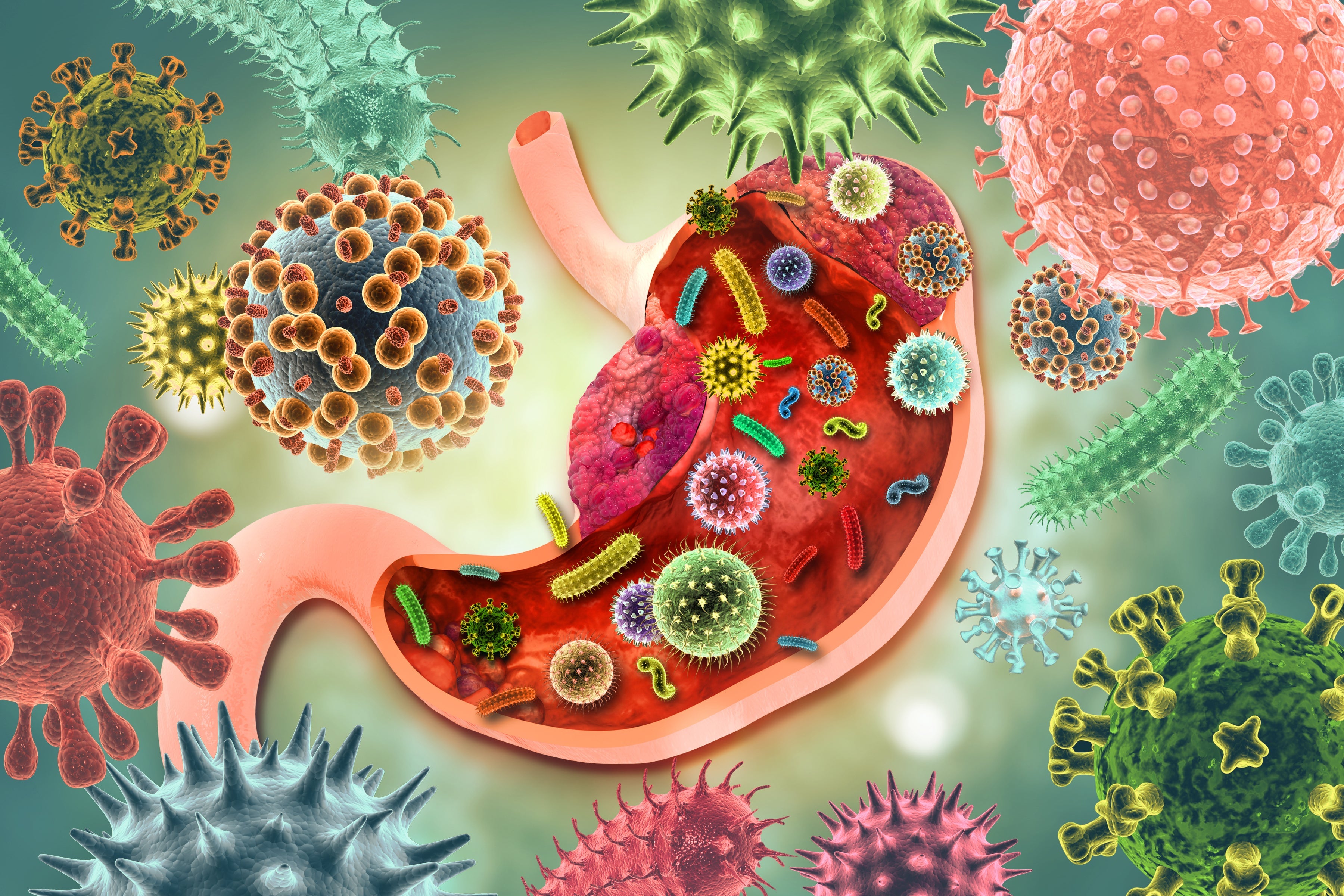
10 min read
An Introduction to Gut Health & Nutrition – 5 Must See Articles
Posted By
Dan Palmay
Author: Megan Jones (Adv.Dip.NutMed, BHsc.NutMed)
Addressing our gut seems to be the latest health advice when it comes to improving our overall vitality and wellbeing. And, we would say, for very good reason! Weighing in at around 2kg, and even bigger than the average human brain, our gut microbiome, located within our gastrointestinal tract, has been found to do a lot more than just digest the food we eat.1 In fact, our digestive health has the power to impact all areas of our health, from our brain health and mood, to immunity, inflammation and allergies, and even our metabolism and our ability to maintain a healthy weight.2
Here in our latest blog series on gut health we explore the fascinating world within, uncovering the secrets and science behind nurturing a happy and healthy gut.
Our five-part blog series includes:
Trusting your gut - understanding the link between gut health & nutrition.
Our gut microbiome is a diverse and dynamic ecosystem of bacteria, fungi, and other microbes, playing a pivotal role in maintaining our health.3 Differences in its composition and therefore function are associated with a variety of chronic diseases, ranging from gastrointestinal inflammatory and metabolic conditions to neurological, cardiovascular, and respiratory illnesses.4
While our gut and brain engage in constant chemical messaging and conversation through the ‘gut-brain axis’,5 this intricate network of communication influences not only our digestion but also our mood, stress levels, and cognitive function as well.6 Our intestines are primary producers of serotonin, which literally means a happy gut makes a happy you!7 It is clear to see why our gut is often referred to as our ‘second brain’!8
Did you know?: Research tells us that our diets and even the environment we live in (both internally and externally) both strongly influence the state of our gut health, through shaping the gut microbiota that inhabit our microbiome.9
It has also been reported that maintenance of a healthy gut microbiota, via nutrition and use of food supplements like Nuzest’s Good Green Vitality, could lead to the reduction of the lifestyle-related metabolic conditions and disease.10
For more on the gut-brain connection, click here and read our latest article!
The Gut Connection: How to Improve Your Digestion and Gut Health in 6 Steps
Whilst we cannot use one specific measure for gut health, we do know that smooth and efficient digestion - which is the process through which our body breaks down food, absorbs nutrients, and eliminates waste - plays a key role in our health and well-being.11 By maintaining a healthy gut, we enhance our digestion, ensuring optimal nutrient absorption, nutrient production and the right balance of gut bacteria. Good digestion is arguably the foundation of good health!12
Find out which six steps we recommend to improving your digestion and gut health.
Does Gut Health Affect Your Immune System? | Do These 6 Things
Did you know that over 70% of our immune system resides in our gut?13 A flourishing gut microbiome is key when it comes to immune cell production, a reduction in inflammation, and helping to keep allergies and autoimmune conditions at bay.14
The foods we eat affect the diversity and composition of bacteria in our gut, which in turn affects the immune cells and even the integrity of our gut wall lining, which can determine how susceptible we are to illness.2
Find out which six things we recommend when it comes to gut health and your immune system now!
The Link Between Gut Health & Allergies Plus 5 Top Tips to Help
With so many immune cells residing in our gastrointestinal system, it may not be so surprising to learn that gut health plays a crucial role in the development of allergies.15 A balanced and diverse gut microbiome can not only support and regulate the immune system, but also reduce the likelihood of developing allergies by promoting immune tolerance to harmless substances – think pollen, animal fur or grass.16 In fact, an imbalanced gut microbiome can lead to both increased inflammation and a higher risk of allergic reactions as the immune system becomes more reactive to allergens.17
If you suffer from allergies or if you know someone who does, click here to understand more on the science and the ‘why’ behind these pesky immune reactions!
Probiotics vs. Prebiotics
Despite sounding similar in name, and both playing important roles in restoring the normal gut flora while helping the good bacteria flourish, probiotics and prebiotics both serve very different functions and work in very different ways within our gut.18
If you are curious to find out more about how these live organisms and non-digestible fibres help our gastrointestinal systems to thrive, read on.
This concludes out gut health blog series! Join us next quarter where we’ll be talking about all things healthy ageing.
References:
- Practitioners TRAC of general. The gut microbiome [Internet]. Australian Family Physician. Available from: https://www.racgp.org.au/afp/2017/april/the-gut-microbiome
- Vijay A, Valdes AM. Role of the gut microbiome in chronic diseases: a narrative review. European Journal of Clinical Nutrition [Internet]. 2021 Sep 28;1–13. Available from: https://www.nature.com/articles/s41430-021-00991-6?fbclid=IwAR3hURerCCmnDi2rNUKqO433GlApXMbYRHkq3MqEuJECs5hJQlPYXKShmTo
- Thursby E, Juge N. Introduction to the human gut microbiota. Biochemical Journal [Internet]. 2017 May 16;474(11):1823–36. Available from: https://www.ncbi.nlm.nih.gov/pmc/articles/PMC5433529/
- Durack J, Lynch SV. The gut microbiome: Relationships with disease and opportunities for therapy. The Journal of Experimental Medicine. 2018 Oct 15;216(1):20–40.
- Carabotti M, Scirocco A, Maselli MA, Severi C. The gut-brain axis: interactions between enteric microbiota, central and enteric nervous systems. Annals of gastroenterology. 2015;28(2):203–9.
- Appleton J. The Gut-Brain Axis: Influence of Microbiota on Mood and Mental Health. Integrative Medicine: A Clinician’s Journal [Internet]. 2018 Aug 1;17(4):28–32. Available from: https://www.ncbi.nlm.nih.gov/pmc/articles/PMC6469458/
- Bektas A, Erdal H, Ulusoy M, Uzbay IT. Does Seratonin in the intestines make you happy? The Turkish Journal of Gastroenterology. 2020 Oct 30;31(10):721–3.
- Foster JA. Gut feelings: bacteria and the brain. Cerebrum : the Dana forum on brain science [Internet]. 2013;2013:9. Available from: https://www.ncbi.nlm.nih.gov/pmc/articles/PMC3788166/
- Requena T, Martínez-Cuesta MC, Peláez C. Diet and microbiota linked in health and disease. Food & Function [Internet]. 2018 [cited 2019 Nov 21];9(2):688–704. Available from: https://pubs.rsc.org/en/content/articlelanding/2018/FO/C7FO01820G#!divAbstract
- Ferraris C, Elli M, Tagliabue A. Gut Microbiota for Health: How Can Diet Maintain A Healthy Gut Microbiota? Nutrients. 2020 Nov 23;12(11):3596.
- Zhang YJ, Li S, Gan RY, Zhou T, Xu DP, Li HB. Impacts of Gut Bacteria on Human Health and Diseases. International Journal of Molecular Sciences [Internet]. 2015 Apr 2;16(12):7493–519. Available from: https://www.ncbi.nlm.nih.gov/pmc/articles/PMC4425030/
- Quigley EMM. Gut bacteria in health and disease. Gastroenterology & hepatology [Internet]. 2013;9(9):560–9. Available from: https://www.ncbi.nlm.nih.gov/pmc/articles/PMC3983973/
- Wiertsema SP, van Bergenhenegouwen J, Garssen J, Knippels LMJ. The Interplay between the Gut Microbiome and the Immune System in the Context of Infectious Diseases throughout Life and the Role of Nutrition in Optimizing Treatment Strategies. Nutrients [Internet]. 2021 Mar 9;13(3):886. Available from: https://www.ncbi.nlm.nih.gov/pmc/articles/PMC8001875/
- Yoo J, Groer M, Dutra S, Sarkar A, McSkimming D. Gut Microbiota and Immune System Interactions. Microorganisms. 2020 Oct 15;8(10):1587.
- Shu SA, Yuen AWT, Woo E, Chu KH, Kwan HS, Yang GX, et al. Microbiota and Food Allergy. Clinical Reviews in Allergy & Immunology [Internet]. 2019 Aug 1;57(1):83–97. Available from: https://pubmed.ncbi.nlm.nih.gov/30564985/
- Suther C, Moore MD, Beigelman A, Zhou Y. The Gut Microbiome and the Big Eight. Nutrients [Internet]. 2020 Dec 3;12(12). Available from: https://www.ncbi.nlm.nih.gov/pmc/articles/PMC7761723/
- Rachid R, Chatila TA. The role of the gut microbiota in food allergy. Current Opinion in Pediatrics. 2016 Dec;28(6):748–53.
- Sanders ME, Merenstein DJ, Reid G, Gibson GR, Rastall RA. Probiotics and prebiotics in intestinal health and disease: from biology to the clinic. Nature Reviews Gastroenterology & Hepatology [Internet]. 2019 Jul 11;16. Available from: https://www.nature.com/articles/s41575-019-0173-3?fbclid=IwAR2a98Jr5prAWZJ_kxV4vhutfqGgDZ9vPplIQI-AhN_xxPayXLc-VqB3XSo&sfns=mo
Related news
min read
Probiotics vs. Prebiotics
Unleash gut health with probiotics and prebiotics! Strengthen digestion, immunity, and overall well-being. Try Nuzest's Good Green Vitality for convenient support with 8 billion CFU of probiotics. Take charge now!
min read
The Link Between Gut Health & Allergies - Plus 5 Top Tips to Help
Discover the link between gut health and allergies, and how the gut microbiome influences the body's immune response to allergens. Learn how adopting a balanced diet with prebiotics and probiotics can support gut health, reducing the risk of allergic reactions. Explore solutions for allergy relief and fostering a healthier gut with Nuzest’s multi-nutrient formula, Good Green Vitality.
min read
The Great Diet Debate: Unravelling the Tapestry of Popular Eating Plans
Exploring popular diets such as the Mediterranean, Ketogenic, Plant-Based, Paleo, and Intermittent Fasting, this overview highlights their principles, benefits, and considerations. It emphasizes the importance of finding a dietary pattern that aligns with individual health goals and preferences, while suggesting the potential benefits of incorporating a multi-nutrient supplement for overall health.
min read
The Gut Connection: How to Improve Your Digestion and Gut Health in 6 Steps
Discover the significance of gut health and its impact on digestion and overall well-being in this insightful article. Learn six practical steps, including maintaining a balanced diet, staying hydrated, managing stress, and using antibiotics wisely, to promote a healthy gut and enhance vitality.
min read
Does Gut Health Affect Your Immune System? | Do These 6 Things
The gut microbiome, which consists of trillions of bacteria in our digestive tract, plays a crucial role in supporting our immune system and overall health. Consuming probiotics and prebiotics, staying hydrated, managing stress, limiting processed foods, and engaging in outdoor activity and exercise are effective strategies to promote a healthy gut and enhance immunity.
min read
What is Collagen? Types, Sources and Benefits of Supplementation
Collagen is essential for joints, bones, muscles, ligaments, tendons, cartilage, skin, hair and nails.2 It is one of the primary structural proteins of connective tissue and plays a crucial role in the body by cushioning, strengthening, hydrating, binding, and connecting tissues together.3 Connective tissues are able to provide physical and mechanical support through the collagen, elastic and reticular fibres
min read
Kids Good Stuff for Skin Health
How can you ensure your kids have healthy skin? A part from the obvious, what nutrients can we provide our kids to ensure their skin stays in tip top shape?
min read
Maximising Mood In Your Kids
Almost 1 in 7 children and adults aged 4-17 had been diagnosed with a mental health disorder. Amy Butler discusses good nutrition and lifestyle modifications, that can help to reduce the risk.
min read
Long-Lasting Energy For Kids
Children and adolescents are going through massive periods of growth and development. To keep up with the demands of school, extracurricular activities, sports and friendships, kids often need a bit of an energy boost. In our latest blog we break down some specific nutrients for energy, to help support growing kids, and the best places to source them from.
min read
Setting Health Goals & Staying Motivated in 2021
Use this tried and tested goal strategy to set smaller, specific goals to avoid the overwhelm of unrealistic and vague health objectives.















